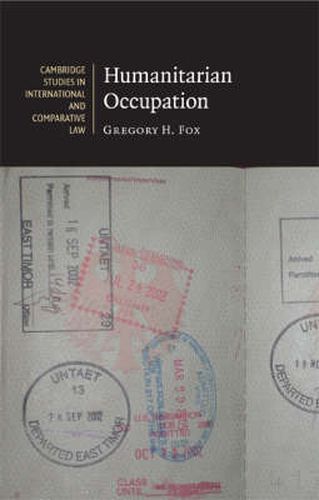Readings Newsletter
Become a Readings Member to make your shopping experience even easier.
Sign in or sign up for free!
You’re not far away from qualifying for FREE standard shipping within Australia
You’ve qualified for FREE standard shipping within Australia
The cart is loading…






This book analyzes a new phenomenon in international law: international organizations assuming the powers of a national government in order to reform political institutions. After reviewing the history of internationalized territories, this book asks two questions about these ‘humanitarian occupations’. First, why did they occur? The book argues that the missions were part of a larger trend in international law to maintain existing states and their populations. The only way this could occur in these territories, which had all seen violent internal conflict, was for international administrators to take charge. Second, what is the legal justification for the missions? The book examines each of the existing justifications and finds them wanting. A new foundation is needed, one that takes account of the missions’ authorisation by the UN Security Council and their pursuit of goals widely supported in the international community.
$9.00 standard shipping within Australia
FREE standard shipping within Australia for orders over $100.00
Express & International shipping calculated at checkout
This book analyzes a new phenomenon in international law: international organizations assuming the powers of a national government in order to reform political institutions. After reviewing the history of internationalized territories, this book asks two questions about these ‘humanitarian occupations’. First, why did they occur? The book argues that the missions were part of a larger trend in international law to maintain existing states and their populations. The only way this could occur in these territories, which had all seen violent internal conflict, was for international administrators to take charge. Second, what is the legal justification for the missions? The book examines each of the existing justifications and finds them wanting. A new foundation is needed, one that takes account of the missions’ authorisation by the UN Security Council and their pursuit of goals widely supported in the international community.